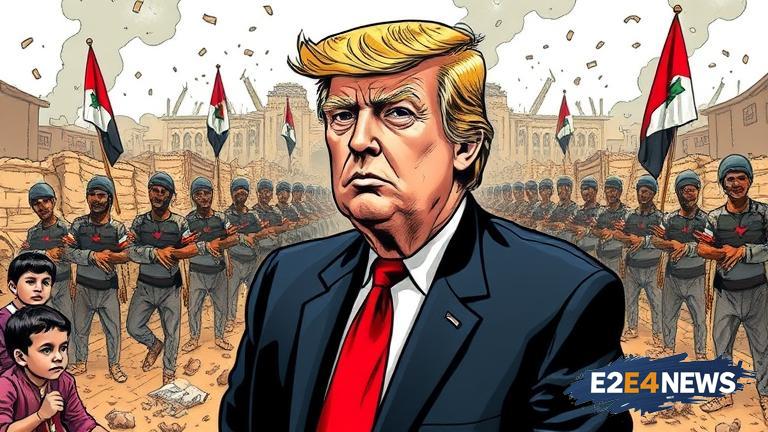The Gaza Strip, a Palestinian territory, has been facing a severe famine due to the ongoing Israeli blockade and restrictions on the movement of people and goods. The humanitarian crisis has worsened over the years, with reports of widespread poverty, malnutrition, and lack of access to basic necessities like food, water, and healthcare. Despite the growing concern and outrage from the international community, former US President Donald Trump has remained silent on the issue. This has sparked criticism and speculation about his priorities and commitment to human rights. Trump’s silence on the Gaza famine is particularly surprising given his vocal stance on other international issues, such as the conflict in Ukraine and the situation in Venezuela. The former President has been known for his controversial and often divisive comments on social media, but his lack of response to the Gaza crisis has been deafening. The Gaza Strip has been under Israeli occupation since 1967, and the blockade has been in place since 2007. The restrictions have had a devastating impact on the local economy, with high levels of unemployment and poverty. The famine has also had a disproportionate impact on vulnerable populations, including children, women, and the elderly. The international community has been calling for an end to the blockade and for increased humanitarian aid to be allowed into the territory. The United Nations has warned of a catastrophic humanitarian crisis if the situation is not addressed urgently. The European Union has also expressed concern and called for a peaceful resolution to the conflict. However, the US has been criticized for its lack of action on the issue, with many accusing the Trump administration of being too close to the Israeli government. The silence from Trump has been seen as a reflection of this bias, with many arguing that he has failed to prioritize human rights and humanitarian concerns. The Gaza famine is a complex issue, with deep-rooted historical, political, and economic factors. The conflict between Israel and Palestine is one of the most enduring and contentious in the world, with both sides having competing claims and narratives. The international community has been trying to broker a peace agreement for decades, but a lasting solution has yet to be found. The Gaza Strip is one of the most densely populated places on earth, with over 2 million people living in a territory of just 360 square kilometers. The blockade has made it difficult for people to access basic necessities, with many relying on international aid to survive. The situation has been exacerbated by the COVID-19 pandemic, which has had a devastating impact on the local healthcare system. The Gaza famine is a humanitarian crisis that requires immediate attention and action. The international community must come together to pressure Israel to lift the blockade and allow humanitarian aid to reach those in need. The US, in particular, has a critical role to play in resolving the crisis, given its significant influence over Israeli policy. Trump’s silence on the issue has been a missed opportunity to demonstrate leadership and commitment to human rights. As the situation continues to deteriorate, it is imperative that the international community takes action to address the humanitarian crisis in Gaza. The consequences of inaction will be catastrophic, with potentially devastating consequences for the people of Gaza and the wider region. The Gaza famine is a stark reminder of the need for a peaceful and lasting resolution to the conflict between Israel and Palestine. It is a crisis that requires urgent attention, and one that demands leadership and action from the international community.
